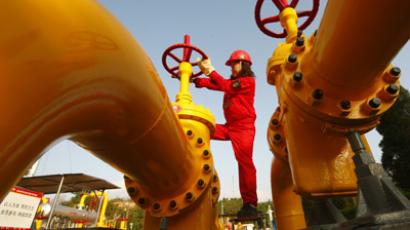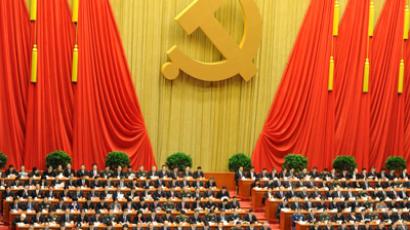‘Export – led Chinese economy’ should change its route
Reshaping the Chinese economy is one of the key challenges for the country’s new leader, Xi Jinping. Many experts agree that domestic consumption should replace exports as an economic driver.
“Previously they [the Chinese] relied on an export-led, investment-led growth model, which, I think, is no longer applicable, it created a number of structural imbalances,” Neil Mackinnon, strategic advisor at VTB Capital, told Business RT.Since 2009 exports by China have been constantly rising to stand at 31% of its GDP in 2011, according to World Bank data. In the meantime, the share of household consumption in GDP fell to 35.4% in 2011 from 44% in 2002.These trends are exactly the thing the new leaders need to reverse. Analysts and Beijing's own advisers have said it needs to overhaul its strategy and nurture consumer spending and services to meet its pledge of doubling incomes by 2020.Reliance on exports has already hit the country’s economy hard, as its growth was dragged down by anemic demand in Europe and the US for Chinese products over the last year. Overhang from excessive lending for factories and infrastructure came as another burden.Economic growth in China that fell to a three-year low of 7.4% in the latest quarter may go down further to 5% by 2015, the World Bank warned.Corruption and bribery are among other key issues hanging over the Chinese economy. With state banks preferring to lend to state-run companies or not at all, private entrepreneurs say they have had to turn to unofficial money-lenders.“Non-state firms, or the private firms, are now having harder times than 10 years ago of getting access to credit from the banking system,” agreed Professor Xiaodong Zhu from University of Toronto.Breaking a monopoly of the banking system in China will be a real challenge, as “it has been very powerful politically,” the professor concluded.Xi Jinping, the 59-year-old son of a revolutionary hero, acknowledged the lengthy agenda for what should be the first of two five-year terms in office, succeeding Hu Jintao as the leader of the Chinese Communist Party. Xi assumes the leadership at a time when the ruling party is confronted by slower economic growth, a public clamor to end corruption, and demands for change that threaten its hold on power.Making China more open to foreign markets and investment was a key strategy during Hu’s ten-year rule. During that period the country turned into a manufacturing powerhouse and drew tens of millions of rural migrants into the cities. Easier access to credit underpinned a construction boom, as well as helped to build the world's longest high-speed rail network.














